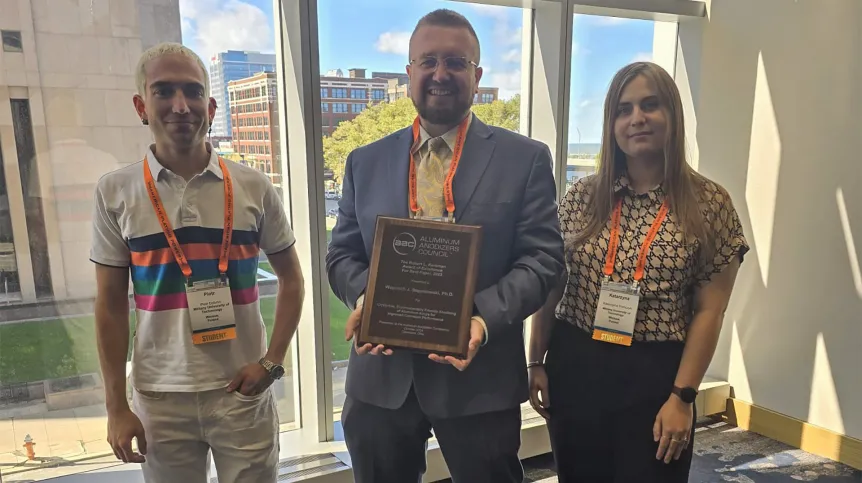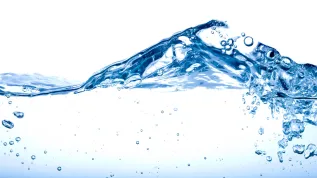
Scientists from the Military University of Technology are working on a 'green alternative' to carcinogenic substances commonly used in the anodising process. New techniques for protecting metal parts against corrosion are important, for example, for the aviation and space industries.
According to the university’s Dr. Wojciech Stępniowski, anodic oxidation of metal alloys is used to create an anti-corrosion coating - an oxide layer, which additionally improves the mechanical properties of the surface, and improves aesthetics.
'Industrial anodising is carried out in solutions containing hexavalent chromium, which is carcinogenic. We, like scientists around the world, are looking for methods free of hexavalent chromium. We are working on new methods to protect aluminium parts from corrosion in a comparable way to those commonly used', says Dr. Stępniowski.
Materials engineers under his scientific supervision, Katarzyna Tomczyk and Piotr Dobroń, were awarded in the USA for innovative research results. The awards were given during the Aluminum Anodizers Council Conference in Cleveland, Ohio, on 1-3 October.
Katarzyna Tomczyk, who studies at the Doctoral School of the Military University of Technology, was awarded for anodising aluminium alloys - a process that protects against corrosion. Piotr Dobroń, a student at the Faculty of New Technologies and Chemistry of the Military University of Technology, received the award for anodising a copper-silver alloy - the applications of this technique are related to the reduction of carbon dioxide to hydrocarbons and alcohols. The third awarded researcher was a doctoral candidate from Northwestern University.
Dr. Stępniowski says that in the future, methods such as those developed by his doctoral candidates and students may find application in aviation and space industries. During the conference in Cleveland, experts from universities around the world exchanged knowledge and experiences with representatives of research and development units in companies such as Apple Inc., Quaker Houghton and Boeing.
Dr. Stępniowski was awarded at the same event for his work on chromium-free alternatives to anodising aluminium alloys - the result of the scientific activity Miniatura 6. (PAP)
PAP - Science in Poland, Karolina Duszczyk
kol/ bar/ kap/
tr. RL













